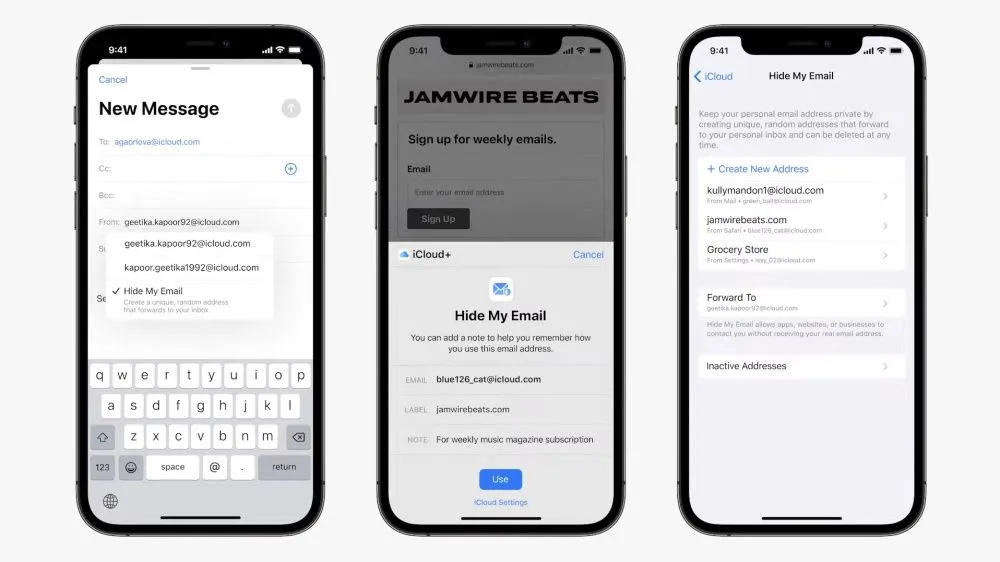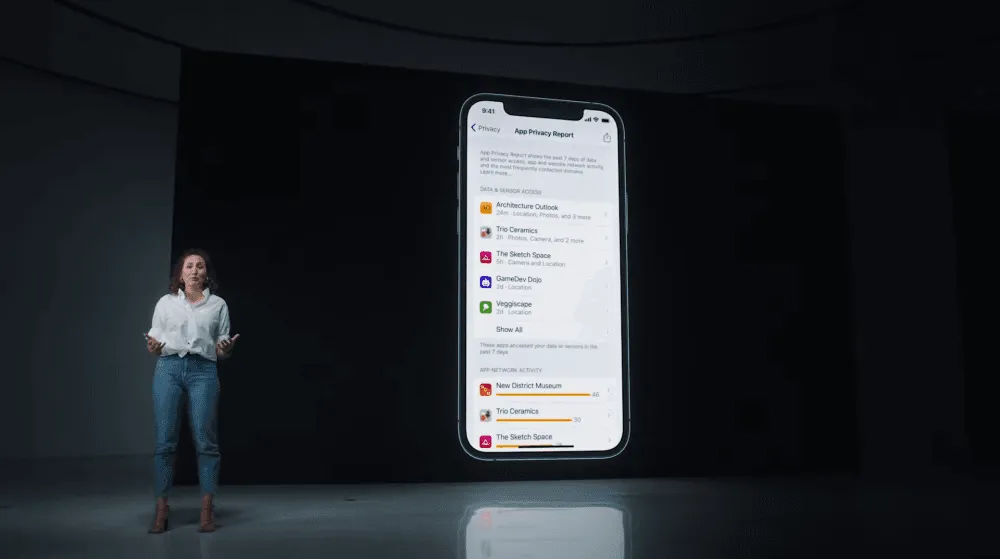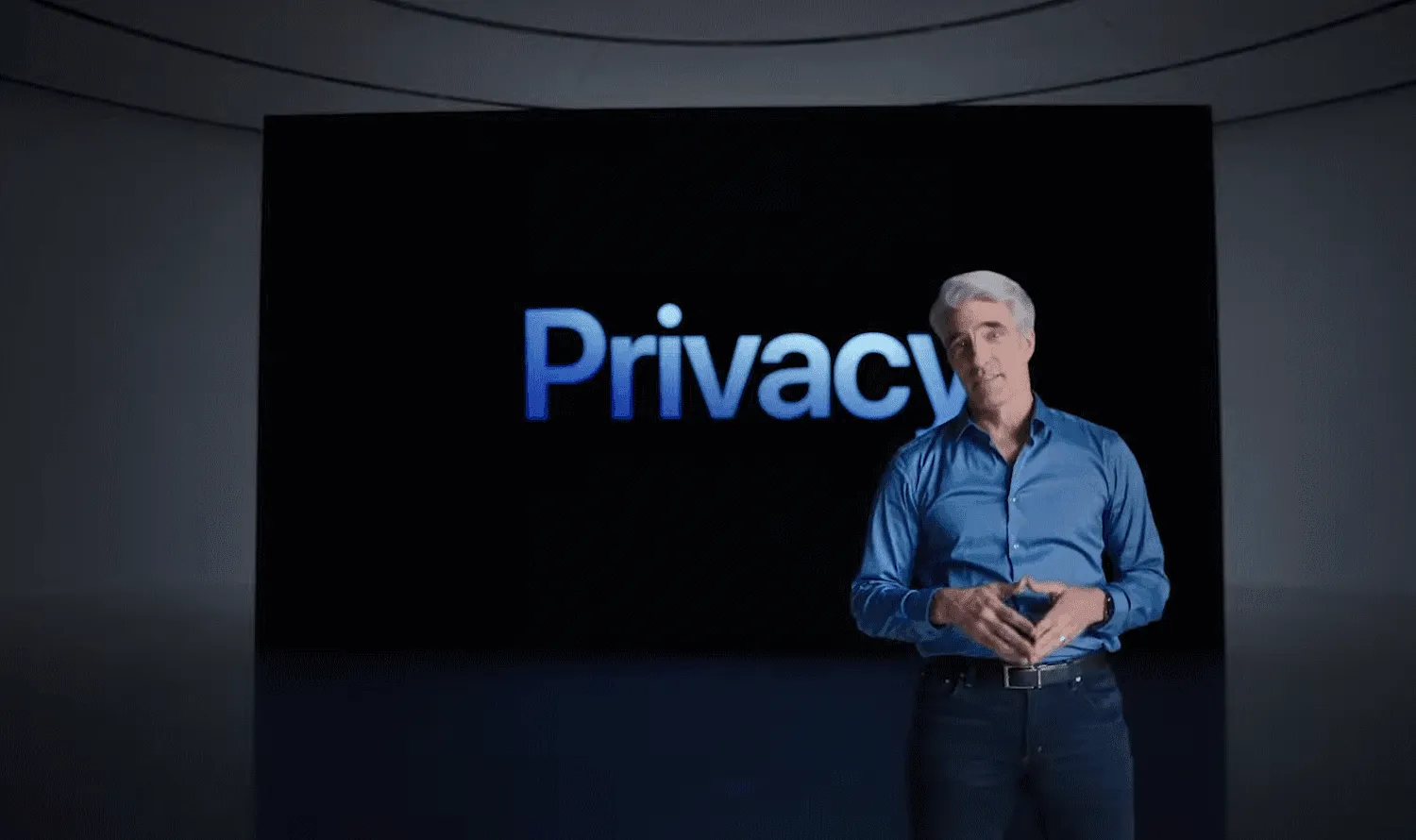New Apple privacy features announced at WWDC 2021
At its annual developer conference on Monday, Apple announced updates to its considerable product portfolio, including iOS 15 and macOS 12 "Monterey," the new versions of its mobile and desktop operating systems.
But besides the new releases, Apple also announced a raft of privacy and security-focused enhancements to old and new services in what has slowly become an annual WWDC tradition, with Apple investing more and more resources in keeping its users secure.
Private Relay
By far, the most important of the new Apple privacy features is a new service called Private Relay.
Described as a VPN service, Private Relay will take a user's Safari browser traffic and relay it through two proxy nodes in order to hide the user's identity from snooping network parties, such as content delivery networks and internet service providers.
"It's designed so that no one, including Apple, can see both who you are and what sites you're visiting," said Mike Abbott, VP of Apple Cloud Services.
Apple said the new feature will be part of iCloud+, a paid version of the iCloud service that Apple plans to launch later this year.
Unfortunately, the new Private Relay offering will not be provided in countries such as Belarus, China, Colombia, Egypt, Kazakhstan, Saudi Arabia, South Africa, Turkmenistan, Uganda, and the Philippines.
Apple cited "regulatory reasons," but security experts were quick to point out that Apple copped out to local governments and was withholding this important feature from users who actually needed it the most.
Precisely
— Bry (@bry_campbell) June 8, 2021
Hide My Email
But iCloud+ will also come with an additional privacy-centered feature.
Called Hide My Email, the feature is pretty self-explanatory, allowing users to generate random emails they can provide to shady sites and then forward any incoming messages to the user's inbox without revealing their real address.
"It's built right into Mail, Safari, and iCloud Settings. So it's easy to set up as many addresses as you need and delete them at any time, keeping you in control," Abbott said.

Both Private Relay and Hide My Email have been previously announced at the WWDC 2019 conference and have been available in limited ways to users before becoming broadly available part of iCloud+.
Find My offline support
Apple also announced changes to how its Find My [Device] service works. Starting with iOS 15, Apple said that the Find My feature will also be able to identify and locate devices that have been turned off or after they've been factory reset.
As several users have pointed out on Twitter during yesterday's live stream, the new feature is a clear move to counter the underground black market of stolen iPhones, where thieves will have a harder time getting away or re-placing stolen devices.
This will greatly cut down on the theft of iPhones, and their value on the black market.
— Brian_Henderson (@brian_henderson) June 7, 2021
No thief wants to be tracked! https://t.co/dcM7vYFEzH
New model for security updates
Another big change announced at WWDC 21 was related to how Apple would treat security updates. Going forward, the OS maker said it would decouple security updates from OS feature upgrades for the first time, similar to how both Google and Microsoft handle security and product updates in Android and Windows.
This means that when iOS 15 hits in the fall, users will have the option to remain on iOS 14 and still receive security updates, something that was not possible until now.
App Privacy Report
In addition, Apple said it is expanding on the idea that went behind the Safari Privacy Report, which showed what data sites were collecting from Safari browser users.
Starting with iOS 15, Apple said users would have access to a new section in the iOS settings. Called the App Privacy Report, this section will allow users to see what permissions apps have access to and to which domains they are initiating network connections.

Mail to block email trackers
Security enhancements were also announced for the Mail app, which will soon block tracking code hidden inside email messages, such as tracking pixels.
Browser and email client extensions that do this have been around for decades, but it is nice to see a major OS vendor incorporate these defenses in its app natively.
Built-in 2FA authenticator app
And last but not least, Apple also said it plans ship its own authenticator app, similar to Google and Microsoft's Authenticator apps.
To be included in iOS 15, the new authenticator feature will make it easier for users to enable 2FA protections for their online accounts by generating one-time passcodes using their iPhone smartphone instead of relying on third-party authenticator apps or codes sent via SMS.
The full WWDC 21 live stream is also available below for readers looking to review other Apple announcements.
Catalin Cimpanu
is a cybersecurity reporter who previously worked at ZDNet and Bleeping Computer, where he became a well-known name in the industry for his constant scoops on new vulnerabilities, cyberattacks, and law enforcement actions against hackers.

